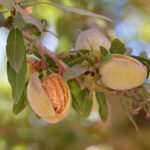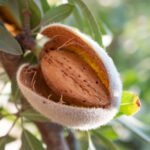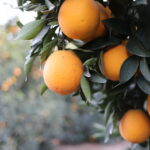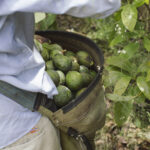California warns farmers about water cutoffs as hot, dry summer looms

The seriousness of California’s drought is being driven home to thousands of farmers in the Central Valley, with new restrictions being implemented this week as a hot and dry summer looms.
State regulators warned 6,600 farmers in the Sacramento-San Joaquin Delta watershed on Tuesday that they’re about to lose the right to pull water from the estuary’s rivers at some point this summer, The Sacramento Bee reports. The watershed covers a major swath of the Central Valley.
The written warnings from the State Water Resources Control Board don’t require the growers to stop taking water right away — but they serve as a likely precursor to the severing of water rights in the coming weeks.
“This is how dry things are,” water board Chairman Joaquin Esquivel was quoted as saying. “The hydrology that we’re seeing is not there .... There will not be enough natural flow.”
Most farmers who rely on the two big government water-conveyance systems, the State Water Project and federal Central Valley Project, have already been told they’ll get little to no water this year. Now the state water board is warning those growers with direct, legal water rights that they are likely to get cut off.
It’s not clear when their water rights would be curtailed, and some farmers will get cut off earlier than others, depending on where they rank in California’s convoluted water rights system, the publication reports.
Most of the farmers receiving the “notices of water unavailability” hold so-called junior rights and would be first in line to get curtailed, possibly in a matter of weeks. But farmers with more senior rights also were warned of the likelihood that they might lose water this summer.
The restrictions come amid reports that California's reservoirs are shrinking quickly as a drought grips the western United States. Dangerously hot temperatures across the U.S. southwest are set to continue to climb this week, reaching higher than 120F (49C) in some areas.
Reservoirs should be full this time of year as the sun melts snowpack from a wet winter, according to ABC News. But this past year was the third driest on record in terms of precipitation.
California's reservoirs are about 50% lower than they should be, and it's only expected to get worse as the summer drags on.
According to state data, not a single reservoir in the state is meeting its historical average, as of June 14. In the region, reservoirs like Don Pedro, Folsom, New Melones, and Lake Oroville are all below the historical average.
And Reuters reported last week that the reservoir created by Hoover Dam, an engineering marvel that symbolized the American ascendance of the 20th Century, has sunk to its lowest level ever.
Lake Mead, formed in the 1930s from the damming of the Colorado River at the Nevada-Arizona border about 30 miles (50 km) east of Las Vegas, is the largest reservoir in the United States. It is crucial to the water supply of 25 million people including in the cities of Los Angeles, San Diego, Phoenix, Tucson and Las Vegas.














































